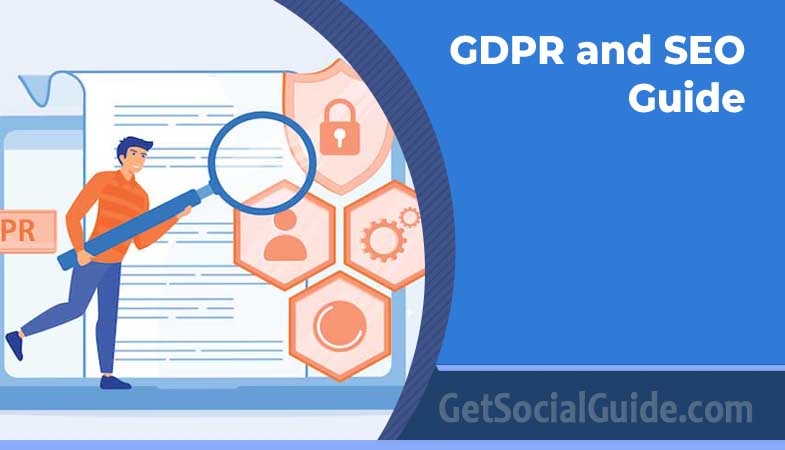GDPR and SEO: Comprehensive Advice and Effective Methods for 2026 Compliance
According to numerous sources published online, the General Data Protection Regulation (GDPR) is by far the most important data protection law enacted to date. It regulates the collection, use, sharing, and protection of data obtained from citizens of all EU member states. In 2026, GDPR compliance has evolved from a legal requirement into a competitive SEO advantage that builds trust, improves user experience, and enhances search engine rankings through privacy-first optimization strategies.
GDPR compliance is no longer optional; it is a global SEO requirement that directly impacts your search visibility and user trust metrics in 2026.
No matter where the organization is headquartered, if you are gathering private information from EU citizens, the regulations apply to you. Businesses who disregard the GDPR risk fines of up to € 20 million or 4% of global revenue. So far, SEO and marketing firms have enjoyed themselves by openly processing client data or taking advantage of several legal ambiguities. This has, however, come to an end with the 2026 updates that specifically address AI data processing, automated decision-making, and cross-border data transfers in the post-Brexit digital landscape.
The intersection of GDPR and SEO has become increasingly complex in 2026. Search engines like Google now consider privacy compliance signals as part of their ranking algorithms, particularly for European search results. Websites that demonstrate robust privacy protections through clear consent mechanisms, transparent data practices, and secure user experiences are seeing measurable improvements in their search visibility, especially for competitive industries where trust is a significant ranking factor.
What is GDPR? Understanding the Foundation of Modern Privacy Law
The General Data Protection Regulation, or GDPR, replaces the outdated Directive of 1995. In the modern communications environment, where the Internet, mobile devices, and social networks changed the rules of the game, the Directive was already out of date. However, few anticipated how rapidly data collection practices would evolve, necessitating the comprehensive framework that GDPR provides.
This Regulation, which went into effect on May 25, 2018, is distinguished by giving users’ personal data the highest level of legal protection. Even if a company doesn’t have its headquarters in Europe but nevertheless handles the personal data of European citizens, the legislation nonetheless applies to such a company. The extraterritorial scope of GDPR has set a global standard, with similar regulations emerging worldwide, including CCPA in California, LGPD in Brazil, and PIPEDA in Canada, creating a complex but necessary privacy compliance landscape for global SEO strategies.
What is GDPR & How Will it Impact Marketing and SEO in 2026?
Users must explicitly consent to be monitored under the General Data Protection Regulation, and after doing so, they have a choice as to how they will be tracked. This fundamental shift from implied to explicit consent has transformed digital marketing analytics, attribution modeling, and conversion tracking—forcing SEO professionals to adapt their measurement frameworks while maintaining competitive visibility in search results.
With the death of third-party cookies, “First-Party Data” (data you collect directly with consent) is now the most valuable asset a marketer can own. GDPR compliance builds the trust necessary to collect this data. Additionally, Google’s Privacy Sandbox initiatives and enhanced conversion tracking now require GDPR-aligned implementation to function correctly in European markets, directly impacting your PPC and SEO measurement capabilities.
Without all the sophisticated attribution tracking that marketers have been accustomed to, the efficacy measurement of certain digital marketing may be approaching that of a billboard on the side of the road. For instance, without cookie clearance, it is nearly hard to attribute ad view-through tracking, and PPC advertising on search is more opaque. However, this challenge presents an opportunity for SEO to demonstrate its superior value proposition in a privacy-first digital ecosystem.
Search engine optimization (SEO) complies fully with GDPR by default. SEO concentrates on keywords and intent rather than the particular personal data that a cookie would gather. This makes SEO a safer long-term investment than tracking-heavy ads. In fact, the 2026 search landscape rewards websites that prioritize user privacy with improved rankings in several ways:
- Trust Signals: HTTPS encryption, clear privacy policies, and transparent data practices contribute to E-E-A-T (Experience, Expertise, Authoritativeness, Trustworthiness) signals that Google increasingly prioritizes
- User Experience: GDPR-compliant websites typically offer cleaner, less intrusive interfaces that reduce bounce rates and improve dwell time
- International Ranking: Sites with proper geo-targeting and regional compliance often rank better in country-specific search results
- Backlink Quality: Reputable websites are more likely to link to GDPR-compliant resources, creating a positive SEO feedback loop
5 Principles of GDPR Compliance for SEO Success in 2026:
GDPR’s Evolving Effect on Digital Marketing and Analytics
With all these changes, the key question is how GDPR will affect digital marketing. There are pop-ups everywhere! Websites store little text files called cookies in your browser. All of the major browsers—Chrome, Safari, and Firefox—accept them. These cookies are useful for enabling both basic website functionality and a more customized experience. However, the cookie consent landscape has evolved significantly since 2018, with 2026 bringing several critical developments:
However, these are what digital marketers use to monitor online behavior. Highly targeted advertising and activity tracking may result in unintentional identification of individuals. The cookies must go through a personal user acceptance process in order to comply with GDPR. Expect to lose, at the very least, some degree of analytical clarity. But this isn’t necessarily negative—it forces marketers to focus on higher-quality, more engaged audiences rather than chasing vanity metrics from disinterested users.
Cookie consent mechanisms have evolved from simple banners to sophisticated preference centers that give users granular control over different types of cookies. The 2026 best practices include:
| Cookie Type | GDPR Requirement | SEO Impact | Best Practice 2026 |
|---|---|---|---|
| Essential Cookies | No consent required | Minimal if implemented efficiently | Load with page; optimize for speed |
| Performance Cookies | Implied consent often sufficient | Can affect Core Web Vitals if heavy | Async loading; defer non-critical |
| Functional Cookies | Explicit consent required | Can enhance UX when used properly | Conditional loading after consent |
| Targeting/Advertising | Explicit consent required | Can slow page speed significantly | Server-side implementation |
How to Align Your SEO Strategies with GDPR Requirements in 2026
You need to think about GDPR compliance and digital marketing from scratch. For your website to remain visible and user-friendly, it must be in excellent condition. The following comprehensive strategies address both technical SEO and user experience considerations while maintaining full GDPR compliance.
1. Website Security (HTTPS) and GDPR: Beyond Basic Implementation
When it comes to GDPR compliance, security is of the utmost significance. Make sure the user’s connection to your website is safe if it collects any kind of information. Since 2014, using SSLs to provide the HTTPS secure protocol has become a ranking factor. However, in 2026, basic HTTPS is just the starting point for both security and SEO advantages.
The next level of security for your website and users is HSTS (HTTP Strict Transport Security), so if you can, install it. At the end of the day, when a user clicks on the SERPs, they are giving your website some of their trust. Respect that by protecting their information. Additional security measures that benefit both GDPR compliance and SEO include:
- Content Security Policy (CSP): Prevents cross-site scripting attacks while potentially improving page loading security
- Subresource Integrity (SRI): Ensures third-party scripts haven’t been tampered with
- Secure cookie attributes: HttpOnly and Secure flags protect user data
- Regular security audits: Identify and fix vulnerabilities before they impact users or search crawlers
2. Optimize User Experience While Maintaining Compliance
Reducing wait times is the simplest method to enhance customer experience. With the Core Web Vitals update, Google is increasing the pressure on website performance. However, GDPR compliance mechanisms like cookie banners and consent management platforms can inadvertently degrade user experience if not implemented carefully.
Spend some time writing alt text and compressing your photographs. A fast site is a compliant site because it minimizes data bloat. Additionally, consider these GDPR-compliant UX optimizations:

SEO practitioners are concerned about the increased use of cookie consent pop-ups. Depending on the cookie’s size and the number of requests, cookies may slow down how quickly a web page loads. Furthermore, intrusive pop-ups can degrade Cumulative Layout Shift (CLS), a key Core Web Vital. Ensure your cookie banner does not shift the content of the page significantly when it loads.
The technical implementation of cookie consent has evolved significantly. Modern best practices include:
- Asynchronous loading: Load consent management scripts in a non-blocking manner
- Local storage alternatives: Where possible, use localStorage instead of cookies for consent storage to reduce HTTP requests
- Conditional loading: Only load tracking scripts after consent is given, improving initial page load performance
- Server-side tagging: Move tracking implementation server-side to reduce client-side JavaScript bloat
4. Why Am I Seeing Fewer Goal Completions? Understanding the Analytics Shift
Due to GDPR, consumers must now manually consent to tracking. This means your analytics might show a drop in traffic or conversions simply because users opted out of tracking, not because they didn’t convert. We advise that your goal tracking be transparent and that you rely more on server-side tracking where compliant.
In 2026, the analytics landscape has adapted with several GDPR-compliant alternatives:
| Analytics Solution | GDPR Compliance | Data Collected | SEO Integration |
|---|---|---|---|
| Google Analytics 4 | With configuration | Anonymized by default | Direct Search Console integration |
| Matomo (On-premise) | Full compliance | You own all data | Custom integration required |
| Plausible Analytics | Designed for compliance | No personal data | Basic referral data only |
| Fathom Analytics | Compliant by design | No cookies, anonymized | Focus on business metrics |
A Comprehensive Analysis: How GDPR Impacts the SEO Industry in 2026
The majority of SEO professionals are presently experiencing mild panic attacks since they are unaware of how to adhere to the GDPR regulations while running their companies. Here is a breakdown of the key impacts with updated 2026 considerations:
| SEO Area | Impact Level | 2026 Specific Challenges | Action Required for Compliance |
|---|---|---|---|
| Analytics & Measurement | High | Loss of granular data due to consent rates; attribution modeling complexity | Switch to GA4 with enhanced consent mode; implement server-side tracking; focus on aggregated insights |
| UX/UI Design | Medium-High | Balancing compliance with Core Web Vitals; mobile-first consent design | Redesign cookie banners to be non-intrusive; implement progressive consent; A/B test compliance UX |
| Lead Generation | High | Reduced form submissions; increased abandonment due to consent requirements | Add specific consent checkboxes to all forms; implement progressive profiling; provide clear value exchange |
| Content Strategy | Low-Medium | Privacy policy updates; transparent data usage explanations | Update Privacy Policy and Terms pages regularly; create content about your privacy practices; use clear language |
| Technical SEO | Medium | Cookie impact on page speed; blocking of crawlers by geo-restrictions | Optimize consent scripts for performance; ensure Googlebot access regardless of location; implement hreflang correctly |
| Local SEO | Medium | Different regulations by country; geo-targeted content compliance | Implement proper hreflang tags; create region-specific privacy policies; use geo-targeting without blocking |
1. Advanced Consent Management Strategies for 2026
Consent is one of the major difficulties that the GDPR addresses. Once GDPR is in effect, passive consent (“By using this site you agree”) is no longer accepted. Your websites will need to convince visitors to agree actively. However, because loading speed is a ranking factor, ensure your consent management platform (CMP) loads asynchronously so it doesn’t block the main content.
Modern consent management has evolved to include:
- Progressive consent: Asking for minimal consent initially, then requesting additional permissions as trust builds
- Contextual consent: Explaining why specific data is needed for specific features
- Preference centers: Allowing users to manage all privacy settings from a central dashboard
- Consent analytics: Tracking consent rates and patterns to optimize your approach
2. Data Analytics & Anonymization: Beyond Basic Compliance
Every business will need to consider how they use user data. Google Analytics gathers user IDs, personal data, and IP addresses, which can violate GDPR. To fix this, you must implement several layers of protection:
3. Value-Added Content Strategy in a Privacy-First World
Businesses now choose to create relevant material in order to reach subscribers due to the GDPR’s constraints. This suggests that SEO adheres to GDPR principles naturally. By optimizing your metadata and URLs, you can gain organic traffic without relying on invasive tracking. Additionally, you should focus more on creating relevant content that offers clients value and motivates them to visit your website frequently (Direct Traffic), which bypasses the need for retargeting ads.
Privacy-focused content strategies that benefit SEO include:
- Educational privacy content: Articles explaining data protection, user rights, and digital privacy build trust and attract quality backlinks
- Transparency reports: Regular updates on data requests, breaches (if any), and compliance improvements demonstrate accountability
- Value-exchange content: High-quality gated content that’s worth exchanging contact information for, with clear privacy assurances
- Privacy-centric branding: Positioning your brand as privacy-conscious attracts users who value data protection
4. Privacy Policies and International Traffic Management
Blocking and redirecting GDPR-compliant EU visitors is no longer a viable option because this could affect your brand’s B2B SEO strategies. It can result in:
- Decrease in backlinks from EU domains as websites avoid linking to inaccessible content
- Your rankings in EU search engines dropping due to poor user experience signals from redirected visitors
- Loss of potential global clients who encounter barriers to accessing your content
- Negative brand perception as privacy-unfriendly or regionally restrictive
The easiest approach is to modify every page of your website to be compliant rather than trying to hide from EU visitors. However, this doesn’t mean one-size-fits-all. Implement intelligent geo-detection that:
- Applies appropriate consent mechanisms based on visitor location
- Maintains consistent content for all users (no cloaking)
- Respects regional regulations without creating barriers
- Provides clear explanations of any regional variations in service
What You Should NOT Do Post-GDPR: Common SEO Pitfalls to Avoid
⚠️ Avoid These SEO-Damaging Tactics in 2026:
- Blocking EU Traffic: This prevents Googlebot (which sometimes crawls from EU IPs) from indexing your site properly, potentially causing significant ranking drops in European search results and reducing your global search visibility.
- Cloaking: Showing one version of the site to Google and another to EU users is a violation of Webmaster Guidelines and will get you penalized. Google’s crawlers now simulate EU user experiences to detect this.
- Forced Consent: Making the site unusable unless the user accepts cookies (“Cookie Walls”) is illegal under GDPR and creates terrible user experience signals that hurt your SEO through increased bounce rates and decreased dwell time.
- Ignoring Data Subject Access Requests (DSARs): Failing to respond to user requests for data access or deletion within the mandated timeframe can lead to penalties and negative publicity that damages your brand’s search reputation.
- Using Non-Compliant Analytics: Continuing with Universal Analytics without proper configuration or using analytics tools that don’t respect GDPR puts your entire data collection at risk and may violate terms of service with other platforms.
The Future of SEO and Privacy: Preparing for 2027 and Beyond
Digital marketers must follow international regulations from Europe and beyond. These features could harm your brand if you don’t take the essential steps. However, GDPR creates a new global standard for data privacy and security, allowing individuals complete control of their personal data. Looking ahead, several trends will shape the intersection of SEO and privacy:
Global Privacy Convergence
More countries will adopt GDPR-like regulations, creating a more uniform but complex global privacy landscape that requires sophisticated geo-targeted SEO strategies.
AI and Privacy Regulations
AI Act and other regulations will govern automated decision-making and AI processing of personal data, requiring transparency in algorithmic content and ranking systems.
Privacy as Ranking Factor
Search engines may explicitly include privacy compliance signals in ranking algorithms, rewarding websites with clear privacy policies and robust security measures.
Conclusion: Turning GDPR Compliance into SEO Advantage
SEO constantly changes. While GDPR restricts data collection, it also levels the playing field, rewarding high-quality content and genuine user experience over manipulative tracking tactics. If you own a small business and manage your own online presence, get assistance to ensure GDPR compliance today.
The most successful websites in 2026 aren’t those that merely comply with GDPR—they’re those that leverage privacy compliance as a competitive advantage. By building trust through transparent data practices, optimizing user experience with privacy-by-design principles, and focusing on value creation rather than data extraction, you can achieve superior SEO results while maintaining full regulatory compliance.
Remember these key principles for GDPR and SEO success:
Is Your Site Fully Compliant and SEO-Optimized for 2026?
Don’t risk fines or missed opportunities. Download our comprehensive GDPR compliance checklist specifically designed for SEO professionals and digital marketers.
Note: This article provides general guidance on GDPR and SEO considerations. It does not constitute legal advice. Consult with a qualified privacy attorney for specific legal guidance regarding your organization’s compliance requirements.







Thanks It helped me so much!
please keep publishing the same
I really liked the great idea